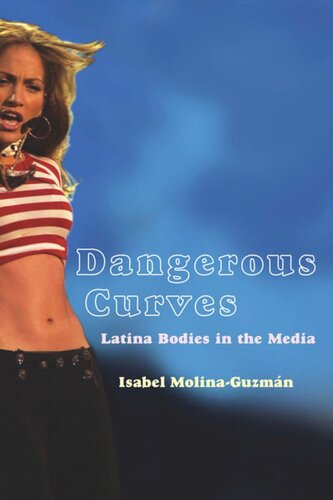

Most ebook files are in PDF format, so you can easily read them using various software such as Foxit Reader or directly on the Google Chrome browser.
Some ebook files are released by publishers in other formats such as .awz, .mobi, .epub, .fb2, etc. You may need to install specific software to read these formats on mobile/PC, such as Calibre.
Please read the tutorial at this link: https://ebookbell.com/faq
We offer FREE conversion to the popular formats you request; however, this may take some time. Therefore, right after payment, please email us, and we will try to provide the service as quickly as possible.
For some exceptional file formats or broken links (if any), please refrain from opening any disputes. Instead, email us first, and we will try to assist within a maximum of 6 hours.
EbookBell Team

0.0
0 reviewsWith images of Jennifer Lopez’s butt and America Ferrera’s smile saturating national and global culture, Latina bodies have become an ubiquitous presence. Dangerous Curves traces the visibility of the Latina body in the media and popular culture by analyzing a broad range of popular media including news, media gossip, movies, television news, and online audience discussions.
Isabel Molina-Guzmán maps the ways in which the Latina body is gendered, sexualized, and racialized within the United States media using a series of fascinating case studies. The book examines tabloid headlines about Jennifer Lopez’s indomitable sexuality, the contested authenticity of Salma Hayek’s portrayal of Frida Kahlo in the movie Frida, and America Ferrera’s universally appealing yet racially sublimated Ugly Betty character. Dangerous Curves carves out a mediated terrain where these racially ambiguous but ethnically marked feminine bodies sell everything from haute couture to tabloids.
Through a careful examination of the cultural tensions embedded in the visibility of Latina bodies in United States media culture, Molina-Guzmán paints a nuanced portrait of the media’s role in shaping public knowledge about Latina identity and Latinidad, and the ways political and social forces shape media representations.